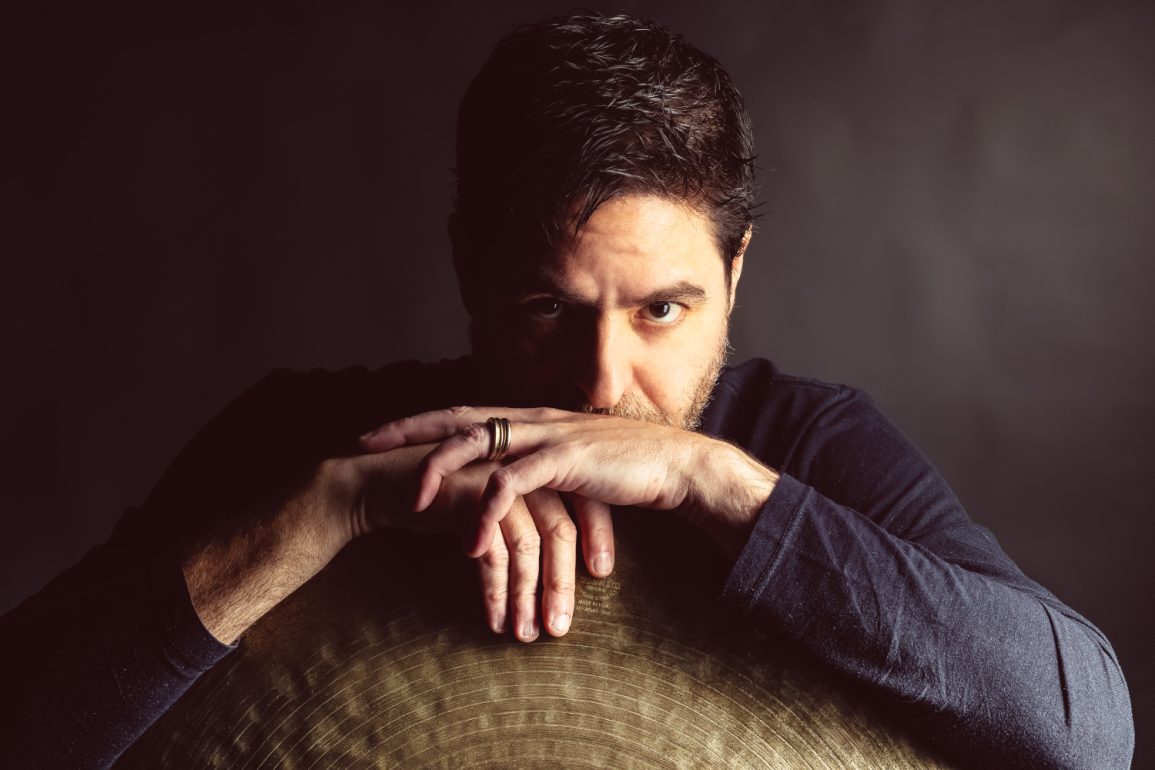Brazilian electronic producer and DJ Gui Boratto has been making waves globally for decades with his take on pop, techno and house infused soundscapes. He emerged in the early 90s as a producer, audio engineer and multi-instrumentalist. After numerous licenses from renowned international labels Gui started releasing his own productions, and hasn’t looked back since. His career has flourished for over two decades in and out of the music industry, with establishing his record label DOC Records and contributing to numerous film scores. In this exclusive interview, we chat to Gui about his latest single ‘Mrs. Pride’, his new booking agency Atomic Soda and the influence of Brazilian culture on his sound.
Gui, you’ve been a prominent figure in the global electronic music scene for over two decades. What do you think are the contributing factors to your long-standing career?
I believe it’s a combination of love and unwavering dedication.
You’ve had a successful career in both the studio and live performance. How do you balance the demands of both, and do you prefer one over the other?
Everyone knows that my true background and passion have always been rooted in instruments, composition, recording, mixing, and even artwork—all the disciplines that allow me to translate my ideas and express myself fully. At the same time, it’s incredibly rewarding to bring those ideas to life during live performances. I believe each aspect inspires and fuels the other, creating a cycle of mutual inspiration. In many ways, I’m renewed by both—the studio is my sanctuary, my ‘home sweet home”.
Your latest release ‘Mrs. Pride’ with Luciana Villanova features a remarkable AI music video to accompany the track. What was the inspiration behind using AI for the video?
The inspiration behind using AI for the ‘Mrs. Pride’ music video came from the story behind the track. The song reflects on themes of vanity, life lessons, and the inevitable passage of time—like a father guiding his child, knowing he won’t always be there. It’s about teaching values, attitudes, and the consequences of actions. AI allowed us to explore these emotions fluidly, creating a dynamic, personal narrative while inviting individual interpretation. By using AI, we also saved time and energy and minimized waste—avoiding excess materials, pollution, and other environmental impacts, all while achieving a refined result.
You manage a newly established booking agency called Atomic Soda. What sparked the decision to be part of this new venture?
I started Atomic Soda to build something fresh and focused on artists. After years in the industry, I saw the need for a booking agency that truly supports artists and connects them with the right opportunities. Also, I believe that the way to shorten this path is the synchronicity between releases and bookings.
You’ve contributed numerous outstanding tracks to games, and you have remixed the theme song for Oscar award winning film City of God (2003). Is your creative approach any different when producing music for games or films compared to normal releases?
When music I’ve made just happens to fit perfectly in a movie scene, it feels like a natural connection. It’s like the music was made for that moment, even though it wasn’t. But when I’m hired to compose specifically for a scene, it’s a more intentional process. I work closely with the visuals and the emotions they want to convey, ensuring the music enhances the story. Both approaches are rewarding, but the first is a happy accident, while the second is more about tailoring the sound to fit a vision.
Which piece of hardware or software would you consider the most essential in your setup, and that you would be a little lost without?
The most essential piece in my setup would probably be my DAW (Digital Audio Workstation). It’s the core of my creative process, where everything comes together. I’m comfortable and familiar with it, so it feels like a second home. As for hardware, my Juno 106 synthesizer and guitar are key to my sound—they provide the tactile experience and inspiration that drive me. It’s funny, though, how differently I compose when I’m with strings compared to when I’m with keys. The approach, the mood—it all shifts. Without these, I’d definitely feel a little lost.
Brazil’s musical heritage is incredibly rich and diverse. How has the Brazilian music scene influenced your work?
My music is influenced not only by Brazil’s rich musical heritage but also by other styles, such as Astor Piazzolla’s tango, 70s and 80s rock, and of course, classical music. I studied piano, and composers like Chopin and Villalobos have a strong influence on my work. I’m also inspired by indie bands, which adds to the sonic diversity I try to bring into my productions
Your record label DOC Records has been around for over a decade, which is a major milestone. What are some key lessons you’ve learnt about navigating the industry since its inception?
Running DOC Records for over a decade has taught me the importance of staying true to my vision while being adaptable. The industry constantly evolves, so flexibility is key. Building strong relationships and balancing creativity with business is essential. With hard work and passion, it all comes together. Despite the variety of influences, there’s always a sonic connection that ties DOC’s storytelling.
How do you stay inspired and keep your sound fresh, especially since the electronic music industry evolves so quickly?
To stay inspired, I focus on the music itself—the song matters, not just the aesthetics. Of course, the tools I use also inspire the creative process, but it’s always about staying true to the sound that feels right. The electronic scene moves fast, but I try to evolve while keeping the essence of what inspired me from the start.
If you weren’t making music, what do you think you’d be doing instead?
If I weren’t making music, I’d probably be working as an architect. I’ve always had a passion for creating, whether it’s through sound or shaping spaces. Architecture is another form of expression for me, where design and creativity come together to create something meaningful. Music and architecture are pretty much the same thing—both are about creating something that resonates, but in different forms. It’s the same creative process, just approached differently. In architecture, you shape spaces and experiences, while in music, you shape sound. Both are about expression, emotion, and making something that connects with people.
Are there any tracks on your current playlist that we’d be surprised you’re listening to?
My playlist is a mix of new indie bands with raw, emotional vibes, slower, atmospheric techno, and at the same time, rock and electronic rock. I’m drawn to deep, evolving textures and powerful energy that create a reflective yet dynamic mood.
What can we expect from your forthcoming releases?
You can expect new releases from fresh artists like Gabriel Brasil, alongside exciting new and more club-oriented tracks from Coppola, Kolombo, L_cio, and Marco AS. There’s also something unreleased coming from my side. Stay tuned 🙂
Watch the video for ‘Mrs Pride’ below:
Follow Gui Boratto:




